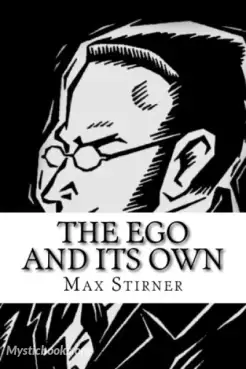
Timeline
Title
Country/Nationality
Max Stirner
Johann Kaspar Schmidt known professionally as Max Stirner, was a German post-Hegelian philosopher, to whom nothing is sacred (indeed, not even himself) and maybe that's why he is so skilled at identifying abstract concepts and 'dissolving' them, dealing mainly with the Hegelian notion of social alienation and self-consciousness. Stirner is often seen as one of the forerunners of nihilism, existentialism, psychoanalytic theory, postmodernism and individualist anarchism.
Stirner's main work The Ego and Its Own was first published in 1844 in Leipzig and has since appeared in numerous editions and translations.
Stirner was born in Bayreuth, Bavaria. What little is known of his life is mostly due to the Scottish-born German writer John Henry Mackay, who wrote a biography of Stirner published in German in 1898 and translated into English in 2005. Stirner was the only child of Albert Christian Heinrich Schmidt and Sophia Elenora Reinlein. His father died of tuberculosis on 19 April 1807 at the age of 37. In 1809, his mother remarried to Heinrich Ballerstedt and settled in West Prussian Kulm .When Stirner turned 20, he attended the University of Berlin,[ where he studied philology. He attended the lectures of Georg Wilhelm Friedrich Hegel, who was to become a source of inspiration for his thinking. He attended Hegel's lectures on the history of philosophy, the philosophy of religion and the subjective spirit. Stirner then moved to the University of Erlangen, which he attended at the same time as Ludwig Feuerbach.
Stirner returned to Berlin and obtained a teaching certificate, but he was unable to obtain a full-time teaching post from the Prussian government. While in Berlin in 1841, Stirner participated in discussions with a group of young philosophers called Die Freien (The Free Ones), whom historians have subsequently categorized as the Young Hegelians. Some of the best known names in 19th century literature and philosophy were involved with this group, including Karl Marx, Friedrich Engels, Bruno Bauer and Arnold Ruge. Contrary to popular belief, Feuerbach was not a member of Die Freien, although he was heavily involved in Young Hegelian discourse.While some of the Young Hegelians were eager subscribers to Hegel's dialectical method and attempted to apply dialectical approaches to Hegel's conclusions, the left-wing members of the group broke with Hegel. Feuerbach and Bauer led this charge.
Frequently the debates would take place at Hippel's, a wine bar in Friedrichstraße, attended by among others Marx and Engels, who were both adherents of Feuerbach at the time. Stirner met with Engels many times and Engels even recalled that they were "great friends," but it is still unclear whether Marx and Stirner ever met. It does not appear that Stirner contributed much to the discussions, but he was a faithful member of the club and an attentive listener. The most-often reproduced portrait of Stirner is a cartoon by Engels, drawn forty years later from memory at biographer Mackay's request. It is highly likely that this and the group sketch of Die Freien at Hippel's are the only firsthand images of Stirner. Stirner worked as a teacher in a school for young girls owned by Madame Gropius when he wrote his major work, The Ego and Its Own, which in part is a polemic against Feuerbach and Bauer, but also against communists such as Wilhelm Weitling and the anarchist Pierre-Joseph Proudhon. He resigned from his teaching position in anticipation of controversy from this work's publication in October 1844.
Books by Max Stirner

The Ego and His Own
A philosophical case for a radical egoism that shuns the socially-oriented outlooks of both "establishment" ideologies and of revolutionaries in favor of an extreme individualism. 'The Ego and His Own' is most widely talked about today only through t...